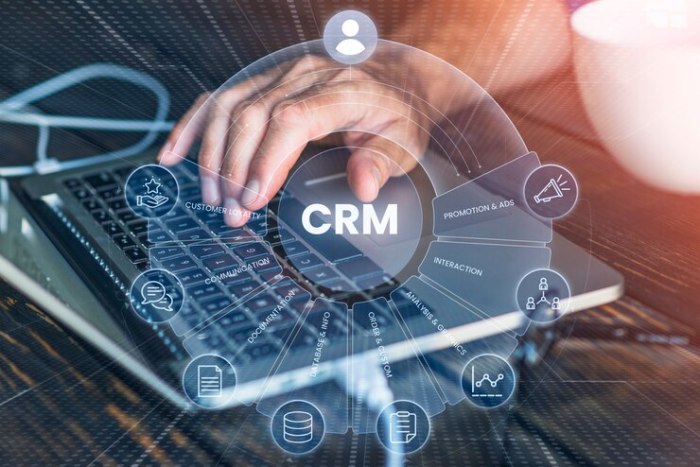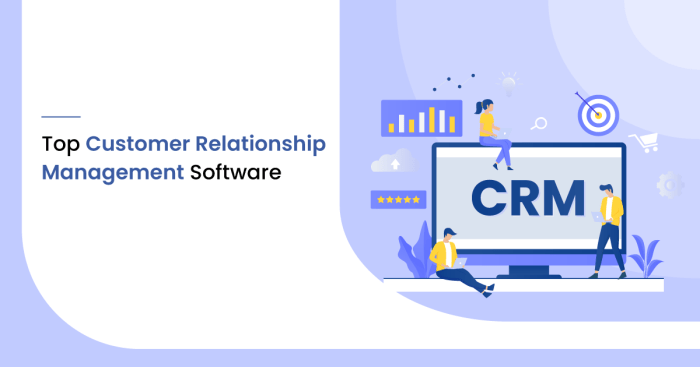In today’s competitive landscape, efficient and effective field service management is paramount for businesses relying on on-site technicians, engineers, or other personnel. Field service CRM software plays a crucial role in streamlining operations, improving customer satisfaction, and boosting overall profitability. This comprehensive guide delves into the intricacies of field service CRM, exploring its key features, benefits, and considerations for choosing the right solution for your business.
Understanding Field Service CRM Software
Field service CRM (Customer Relationship Management) software is a specialized type of CRM designed to manage all aspects of field service operations. Unlike traditional CRM systems that primarily focus on sales and marketing, field service CRM solutions are tailored to the unique challenges of scheduling, dispatching, tracking, and managing technicians and their work orders in the field. This includes managing everything from initial customer contact to final invoice generation.
Key Features of Field Service CRM Software
- Scheduling and Dispatching: Optimize technician schedules based on factors like location, skills, availability, and service requests’ urgency. Real-time visibility into technician locations and availability allows for efficient dispatching and minimizes travel time.
- Work Order Management: Create, assign, track, and manage work orders from initiation to completion. This includes capturing details like customer information, service requests, assigned technician, parts required, and completion status.
- Inventory Management: Track parts, equipment, and tools in real-time. This prevents stockouts, optimizes inventory levels, and ensures technicians have the necessary resources for each job.
- Mobile Workforce Management: Empower technicians with mobile access to work orders, customer information, inventory details, and other crucial data. This enhances efficiency and facilitates communication.
- Customer Relationship Management (CRM): Integrate customer data, interaction history, and service records to provide a holistic view of each customer. This fosters stronger customer relationships and personalized service.
- Reporting and Analytics: Generate reports and analyze key performance indicators (KPIs) to gain insights into operational efficiency, technician performance, customer satisfaction, and other crucial metrics. Examples include first-time fix rates, average service time, and customer satisfaction scores.
- Integration Capabilities: Integrate with other business systems such as accounting software, ERP systems, and mapping applications for a seamless workflow.
- Automated Notifications and Reminders: Send automated notifications and reminders to customers and technicians regarding appointments, work orders, and other important information.
- Service Level Agreement (SLA) Management: Track and manage SLAs to ensure timely service delivery and meet customer expectations. This helps maintain high levels of customer satisfaction.
Benefits of Implementing Field Service CRM Software
Implementing field service CRM software offers numerous benefits, including:
- Improved Efficiency and Productivity: Streamlined workflows, optimized scheduling, and real-time information access significantly improve technician productivity and overall operational efficiency.
- Enhanced Customer Satisfaction: Timely service delivery, personalized attention, and efficient communication enhance customer satisfaction and loyalty.
- Reduced Operational Costs: Optimized routing, minimized travel time, and improved inventory management contribute to significant cost savings.
- Better Resource Allocation: Real-time visibility into technician availability and skills allows for optimal resource allocation, ensuring that the right technician is assigned to the right job.
- Improved First-Time Fix Rates: Access to comprehensive information and inventory tracking helps technicians resolve issues on their first visit, minimizing repeat trips and customer inconvenience.
- Data-Driven Decision Making: Detailed reports and analytics provide valuable insights into operational performance, enabling data-driven decision-making for continuous improvement.
- Increased Revenue and Profitability: Improved efficiency, customer satisfaction, and reduced costs directly contribute to increased revenue and profitability.
Choosing the Right Field Service CRM Software
Selecting the right field service CRM software requires careful consideration of several factors:
- Business Size and Needs: Choose a solution that scales with your business and addresses your specific needs. Smaller businesses may require simpler solutions, while larger enterprises may need more sophisticated features and integrations.
- Budget: Field service CRM solutions vary in price, so it’s essential to establish a budget and choose a solution that fits within your financial constraints.
- Features and Functionality: Consider the key features discussed earlier and choose a solution that offers the functionality you need to manage your field service operations effectively.
- Integration Capabilities: Ensure that the software integrates seamlessly with your existing business systems, such as accounting software, ERP systems, and mapping applications.
- User-Friendliness: Opt for a user-friendly interface that is easy for your technicians and office staff to learn and use.
- Vendor Support: Choose a vendor that offers excellent customer support and ongoing maintenance.
- Scalability: Ensure the chosen software can adapt to your business’s growth and changing needs.
Frequently Asked Questions (FAQ)
- Q: What is the difference between field service CRM and regular CRM?
A: Regular CRM focuses on sales and marketing, while field service CRM is specifically designed for managing on-site technicians and their work orders, incorporating scheduling, dispatching, inventory management, and mobile workforce capabilities. - Q: How much does field service CRM software cost?
A: The cost varies greatly depending on the features, vendor, and number of users. Pricing models include subscription-based fees, per-user fees, and potentially one-time setup costs. It’s best to contact vendors directly for pricing information. - Q: Can field service CRM software integrate with other systems?
A: Yes, many field service CRM solutions offer integration capabilities with accounting software, ERP systems, mapping applications, and other business systems to streamline workflows. - Q: How can field service CRM improve customer satisfaction?
A: By providing timely service, efficient communication, and personalized attention, field service CRM software helps improve customer satisfaction and loyalty. - Q: What are some key metrics to track with field service CRM?
A: Key metrics include first-time fix rates, average service time, customer satisfaction scores, technician utilization rates, and inventory turnover.
Conclusion
Field service CRM software is a powerful tool that can significantly enhance the efficiency, productivity, and profitability of field service businesses. By carefully considering your specific needs and choosing the right solution, you can leverage the many benefits of field service CRM to improve customer satisfaction, optimize operations, and drive growth.
References
While specific product mentions are avoided to maintain objectivity, researching reputable software review sites like Capterra and G2 will provide detailed comparisons of various field service CRM solutions available in the market. Always check for independent reviews and compare features before making a purchase decision.
Call to Action
Ready to transform your field service operations? Explore the leading field service CRM solutions available today and request a demo to see how they can benefit your business. Start optimizing your workflows and enhancing customer satisfaction now!
FAQ Corner
What are the key features of field service CRM software?
Key features typically include appointment scheduling, dispatch optimization, technician tracking, inventory management, customer communication tools, reporting and analytics, and mobile accessibility.

Source: emblemwealth.com
How much does field service CRM software cost?
Pricing varies greatly depending on the vendor, features included, and the number of users. Expect a range from affordable monthly subscriptions to more substantial enterprise-level solutions.
How long does it take to implement field service CRM software?

Source: softwaresuggest.com
Implementation time depends on the complexity of the system and the size of the business. Smaller businesses might see results within weeks, while larger enterprises may require several months.
What are the benefits of using a mobile app with my field service CRM?
Mobile apps provide technicians with real-time access to schedules, customer information, and job details, improving responsiveness and reducing errors. They also facilitate direct communication with customers and dispatchers.
